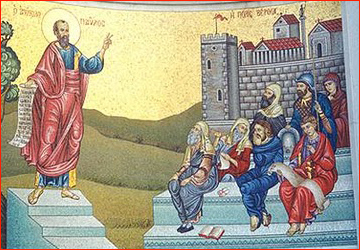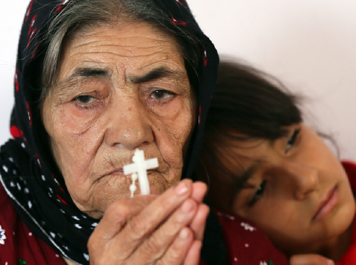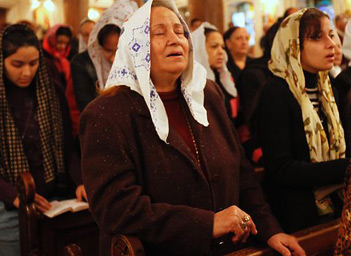By Wiley Richards
Based on 2 Corinthians 8:1-9.
AS to what we work for, I suppose the spiritual answer is, for the Kingdom of God. However, many other needs have a way of intruding in our lives. Take making a living for survival. I remember when several of us preachers made plans to attend classes at the New Orleans Baptist Theological Seminary after we had finished our college work. Finding part-time work in New Orleans did not leave many options. One of my colleagues considered employment at a huge grocery retail group. Then he found out the company sold alcoholic beverages. He quit and moved back to central Alabama.
I even worked for the U. S. Navy. After the Korean war broke out in 1950, several of us recent high school graduates joined the U. S. Navy Reserve and were soon activated and served honorably during the Korean war. Most of us are willing patriots when our country needs us. We work accordingly.
The verses assigned for our study are quite unusual. The apostle Paul was writing to the Corinthian’s church in an attempt to raise money for needy believers in Jerusalem. To challenge the Corinthian believers he refers to the Macedonian churches as the model.
The Bible begins with a description of grace bestowed (vv. 1-2). The word “grace” in the New Testament encompasses the idea of loving-kindness in the Old Testament and pours in new meaning. In the words of the late Dr. Charles Howard, a college professor from Kentucky who thrilled us at an evangelism conference, this grace is described in four points: grace seeks, grace saves, grace sanctifies, and grace satisfies. The Bible illustrates the marvelous work of God among those churches in Macedonia. With its origin in God, He transformed these churches used as a model for the Corinthian Christians.
This sets the mood with grace abounding (vv. 3-4). Jesus promised to give life “more abundantly” (John 10:10). The Macedonian churches learned how to realize it. Their lives had been shattered by battles and military incursions, beginning with Caesar Augustus in 27 B.C., and continuing without relief for decades. In spite of their plight, the Bible points out the “abundance of their joy and deep poverty” which God used to produce joy and “liberality,” their lavish sharing of support for the destitute in Jerusalem.
 The Bible used them as an example of grace administered (vv. 5-6). The believers among the Macedonians revealed the simplicity of their ministry by first giving themselves to the Lord’s work. Having given themselves to God to use as He desired, it was a simple transaction to make themselves to follow Paul’s effort to aid the Christians in Jerusalem. For his part, Paul dispatched Titus, thus supplying a different person to direct the effort. Paul thereby removed himself to avoid being charged with the hope of personal gain.
The Bible used them as an example of grace administered (vv. 5-6). The believers among the Macedonians revealed the simplicity of their ministry by first giving themselves to the Lord’s work. Having given themselves to God to use as He desired, it was a simple transaction to make themselves to follow Paul’s effort to aid the Christians in Jerusalem. For his part, Paul dispatched Titus, thus supplying a different person to direct the effort. Paul thereby removed himself to avoid being charged with the hope of personal gain.
We can see the wisdom of that procedure today. For example, when God blessed the ministry of Billy Graham, Dr. Graham set up an organization to handle all funds including paying his salary, thus avoiding the scandal of some radio and TV evangelists.
In the ministry of the Macedonian churches we see grace demonstrated (vv. 7-8). They abounded by acting in faith as they lived out the grace given to them, demonstrating it by what they said, what they believed, their diligence and love. As Paul explained, what they accomplished proved the sincerity of their love.
In closing, we see grace exemplified (v. 9). The example of Jesus is our model. Being rich in glory, He became poor for our sakes, and that He, through His poverty, might make us rich. His poverty began at His birth in which He was born to a girl unknown beyond her own family and acquaintances, lived His pubic ministry without a permanent residence to call His own (Matt. 8:20), was crucified in dishonor between two thieves, and was buried in a borrowed tomb. As a result, He promises life with Him in heaven’s glory for all who are willing to deny themselves, confess their sin, and believe in Him (John 14:1-4). Courtesy: FBW





















